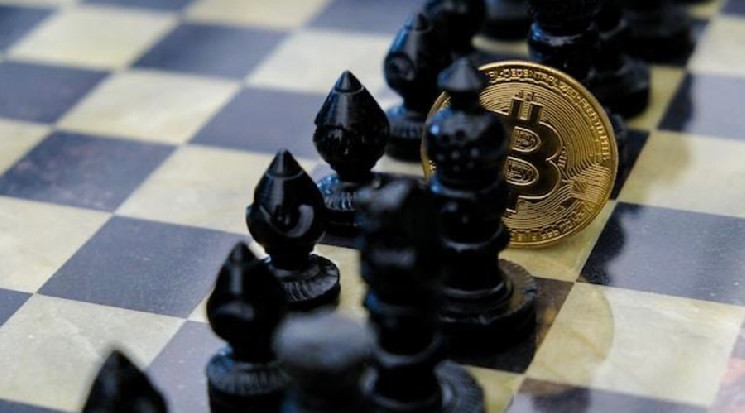Blockchain technology has found extensive application in various sectors, including finance, supply chain management, education, healthcare, real estate and public services. Technology has revolutionized these industries, achieving new levels of security and data privacy. Interestingly, blockchain technology has also significantly advanced the gaming industry as well as others.
According to aMarkets and markets reportIn 2022, revenue from the global blockchain gaming market reached $4.6 billion and is expected to reach $65.7 billion by the end of 2027, representing a compound annual growth rate (CAGR) of 70.3%.
Why is Blockchain Gaming Becoming Popular?
The growing interest and optimistic CAGR in blockchain gaming is not surprising, given the many benefits of the blockchain. Some of these include:
Financial gain
Blockchain technology has helped popularize the play-to-earn (P2E) gaming model, where players earn money through gameplay. It is the foundation of the GameFi (game finance) experience, which combines online gaming with decentralized finance to support an in-game economy. Players can earn cryptocurrencies, rare items and non-fungible tokens (NFTs) through regular gameplay and milestone achievements. In some cases, the acquired NFTs may have fair value and be sold on an NFT marketplace.
Property
Players can truly own the digital assets and NFTs they acquire by playing blockchain games. These games can symbolize characters, skins, weapons, costumes, and other items that the players can actually own outside of the ecosystem. In traditional gaming, players do not own in-game assets even after spending real money to acquire them.
In addition to ownership, blockchain adds provenance, allowing potential buyers to confirm an item’s authenticity and history before a purchase.
Payments
Blockchain technologysignificantly improves paymentsin gaming. First, transactions are faster, especially compared to traditional banking systems. This speed is great for players who want to quickly make in-game purchases to improve their progress. Additionally, blockchain transactions charge significantly lower fees than traditional options because they do not require intermediaries to process the payments.
Players also enjoy improved security, transparency and trust on the blockchain. The technology makes cross-border transactions easy, especially for players who have access to platforms that may be based abroad. This is beneficial for online casinos that serve a wide range of audiences in different geographical locations. Some of thebest bitcoin live casinos to play ataccommodates a diverse mix of gamers who don’t have to worry about paying in major fiat currencies like USD, EUR or GBP. These casinos can be trusted because there is an immutable record of all payments on the Bitcoin blockchain.
Interoperability
Blockchain technology offers the best chance for interoperability in the gaming industry. Although games can be built on different blockchains, developers tend to make their titles as compatible as possible with major blockchains such as Ethereum. This promotes interoperability, allowing developers to create games that players can enjoy regardless of their preferred networks. Furthermore, interoperability ensures that players can connect their wallets regardless of the wallet provider to enjoy seamless payments.
Challenges of Blockchain Gaming
To decide whether or not blockchain technology can function as the new standard for gaming, it is important to consider some of the challenges that are hindering the growth of blockchain gaming. Here are some known barriers to blockchain adoption as a gaming standard:
Technical knowledge
Unfortunately, integrating blockchain technology with gaming can be difficult for developers who don’t fully understand all the technical details involved. As a result, traditional makers interested in the benefits of blockchain may find it difficult to enter the market. This also applies to consumers. For example, players who want to enjoy gambling at a crypto casino, perhaps if fiat options are not available in their country, will first need to understand the volatility of crypto before they can gamble with it, and will still need to learn how to buy it and their can use skills. crypto wallets.
Scalability
The battle of Blockchain technology withscalabilityseverely limits the benefits that the gaming sector can achieve. Many blockchains, including large networks, cannot handle high transaction volumes. This leads to a significant delay in transaction processing, which can hinder seamless gaming. Although there are now layer 2 networks that help solve this problem, scalability is still a major challenge for blockchains.
Security
The blockchain is generally so secure that players can be assured of the safety of their data and crypto tokens. However, blockchain platforms, especially centralized ones, are still highly susceptible to hacking. In March last year, hackers hacked and stole Axie Infinity’s Ronin sidechainapproximately $650 millionin ETH and USDC tokens.
Will Blockchain Become a Standard for Gaming?
The blockchain gaming industry is likely to benefit from the adoption of the technology by gaming giants. For example, Japanese multinational video game publisher Bandai Namco Entertainment Inc., known for games such as Pac-Man, Tekken and Soulcalibur, has dabbled in blockchain gaming. In August, Bandai Namco launched Ryuzo, an AI-powered pet game that allows players to own NFTs of their “Ryu” pets.
Other gaming giants like Ubisoft and Sega have also expressed interest in building games on the Oasys chain, the blockchain that hosts Ryu NFTs. And the number of crypto-accepting casinos is constantly growing, and their number is believed to exceed 900 today.
Despite these milestones, blockchain technology may not immediately enjoy a permanent position as the standard for gaming until adoption increases significantly and developers create workable solutions to address some of the challenges mentioned above.

